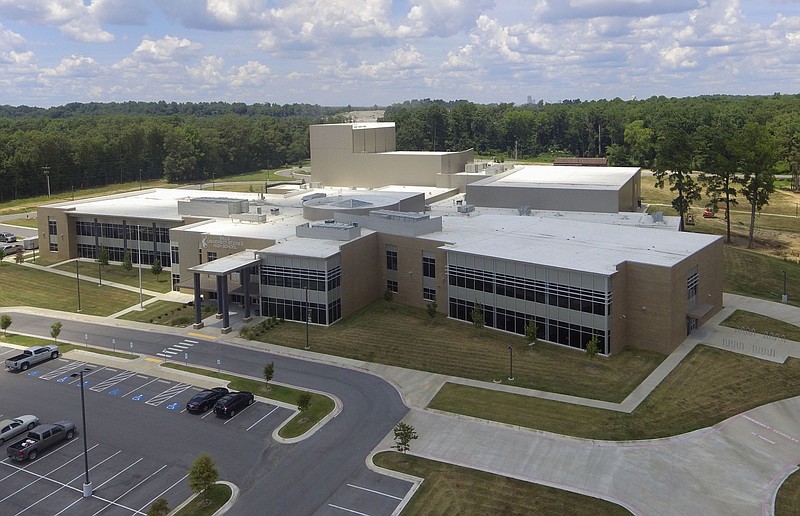Attorneys for Black students in the Pulaski County Special School District are balking at changes the school system has made in its initial plans for enhancing the Mills University Studies High School campus.
In a document submitted last week to Chief U.S. District Judge D. Price Marshall Jr., the attorneys for the students known as the the McClendon intervenors asked the judge to require school district leaders to fully explain changes to an earlier plan to add 10 new classrooms, an arena, a softball field and a renovated JROTC building at Mills.
Marshall is the presiding judge in a nearly 40-year-old Pulaski County school desegregation lawsuit, in which the Pulaski County Special, Jacksonville/North Pulaski school districts and the McClendon intervenors are the remaining parties.
Austin Porter Jr. and Robert Pressman are the attorneys for the intervenors.
The district's initial $19 million plan for Mills has been changed to add six traditional classrooms and some non-traditional school spaces instead of 10 traditional rooms.
District leaders, however, have recently said that the enhancements at Mills could cost as much as $27 million because of national supply chain issues and shortages of construction materials.
In a May 6, 2021, order, Marshall directed the Pulaski County Special district to propose to him a plan to "square up" inequities between the Mills campus, which is in a more heavily Black residential section of the district, and Robinson Middle School, which is in a more affluent, predominantly white residential area.
The two schools were built at the same time and opened to students in August 2019 at a time when the district was obligated in the desegregation lawsuit to equalize the condition of its school buildings.
Marshall said in May 2021 that Mills and Robinson Middle are "excellent facilities." But he called Robinson "superior." "[I]f Mills High gets an A, Robinson Middle gets an A++," the judge wrote at the time.
The district responded to the judge later in 2021 with plans to add the 10 classrooms, a 2,200-seat arena, a softball field and a renovated JROTC building at Mills.
The district then proposed adjustments in a document sent last month to the judge. Those adjustments called for six new traditional classrooms -- three on each of the first and second floors of the expansion -- and seven non-traditional instructional spaces on the first floor and three more on the second floor, intervenor attorneys wrote.
The attorneys for the intervenors asked the judge last week for assurances that there would be adequate numbers of classrooms so that Mills' teachers don't have to share rooms.
Porter and Pressman noted that one of the differences originally identified by the judge between Mills and Robinson was that every teacher had a classroom at Robinson while five teachers at Mills were in rotation with other teachers for classroom space.
The intervenors' attorneys questioned the lack of team meeting rooms for the new 2,200-seat arena and criticized the possible use of "all-purpose" rooms in the arena addition as classrooms to make up for a deficit number of rooms for educational use.
"If these 'all-purpose rooms' would be used for educational purposes, then the noise of sports activity would be a distraction to the educational setting," Porter and Austin argued. "The potential for recreation/sports activity-related noise adversely affecting educational activities in the two "all-purpose rooms." Intervenors await a response on this point."
Porter and Pressman questioned the special school district's reference to public meetings held to get reaction to the building plans. They said there has been "insufficient detail" about those meetings for the judge to conclude there is support among parents and students for the Mills' plan.
"In conclusion, the Court should require the PCSSD to further explain the reduction of 10 classrooms to six and how this would adversely impact the educational goals of the district, particularly as it relates to the equity deficiency as it exists between the Mills facilities and those facilities in the Western portions of Pulaski County, Arkansas," the intervenors wrote to Marshall.
"If the parties are unable to agree that the inequity has been remedied, the Court should consider having a hearing to address this matter," they also said.
